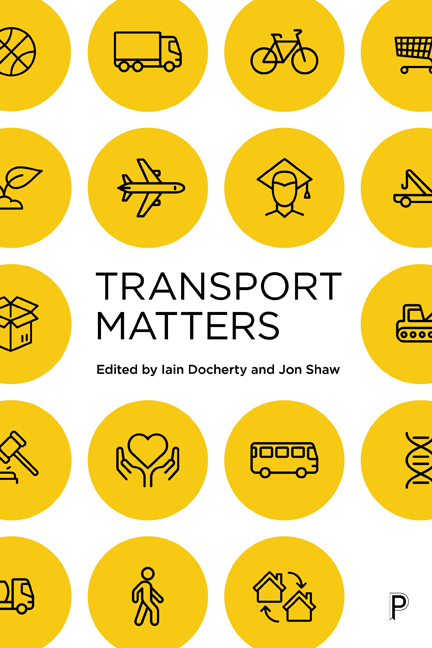9 - Connecting Places: Towards a Participatory, Ordinary Urbanism
Published online by Cambridge University Press: 03 March 2021
Summary
Introduction
Transport is common sense; we all know what it entails. For most people it is a mode – cars, buses, trucks, trains, trams, ships, aeroplanes – for moving people and goods from A to B, connecting the places where we work with those in which we entertain, consume and sleep. This is what we’ve been taught, and how modernist planning conceived of the modern, functional city, by creating a clear demarcation between zones and responding to the growth of the car with a new system of highways and motorways to connect these zones. But as the 21st century dawned, the ecological, social and health implications of automobility were becoming all too apparent. Coupled with evidence of the self-fulfilling prophecy of ‘predict and provide’ planning, these implications suggested that new approaches were needed, at least in the relatively low urban growth scenarios dominating western cities. Such approaches became variously labelled a ‘new realism’ (Goodwin et al 1991) or sustainable mobility (Banister 2008).
In this context, our chapter examines the opportunities and pitfalls of integrating transport planning with urban design and placemaking strategies, policies and actions, using design thinking as a way to address many of the ‘intractables’ associated with implementing transport policy. We argue that it is necessary to focus on the substance and consistency of macro-level strategy as well as concentrated efforts to implement creative and consistent micro-level interventions. We position our argument alongside the contemporary emphasis on smart cities, aiming to reinsert into current debates a more ‘ordinary’ approach that celebrates the significance of intervention in ‘ordinary neighbourhoods’ through the deployment of ‘ordinary technologies’ that are useful in creating more liveable cities – technologies as ordinary as benches and quality pavements. This is not to say that various forms of ‘smartness’ and increasingly open data are not of use to planning processes, but we do believe the task at hand involves better situating these data as just one form of knowledge among many.
As such, we suggest that planning is a form of knowledge in action, and more attention needs to be paid to the ways in which knowledge is developed, used and deployed.
- Type
- Chapter
- Information
- Transport Matters , pp. 205 - 226Publisher: Bristol University PressPrint publication year: 2019



